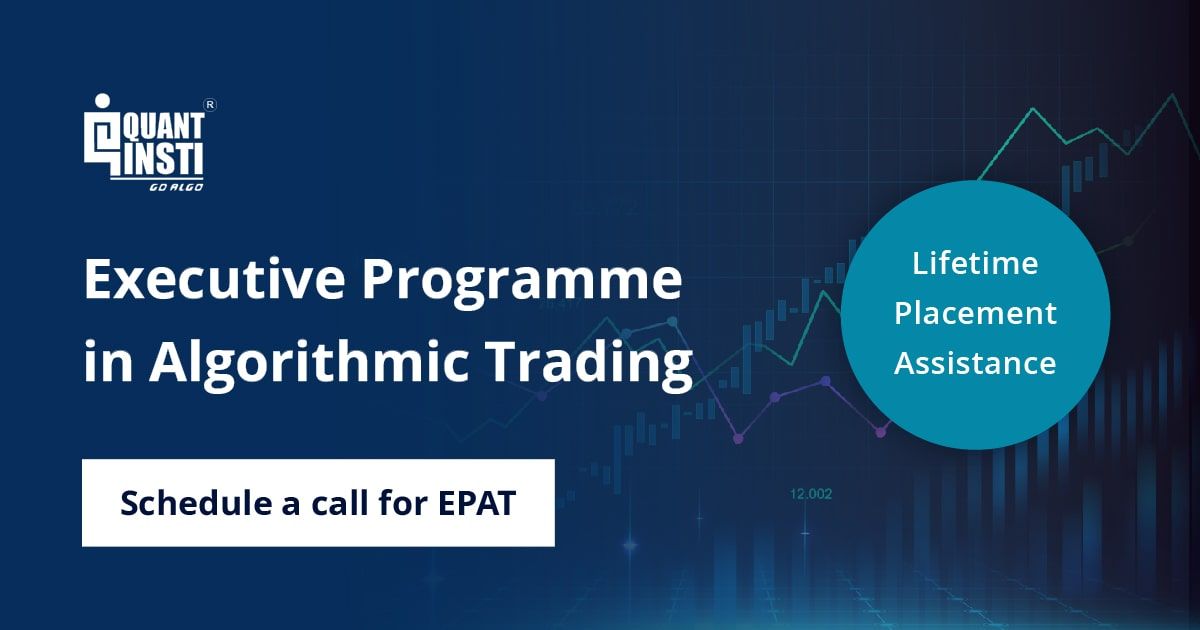Passion, continuous learning, and the desire to consistently keep growing are all the factors that drive success. There are many out there who aspire to be a part of the algorithmic trading domain but are withheld by thoughts of educational qualifications, or hearsay from others that might decline their confidence to achieve it.
On the other hand, there are remarkable individuals and their stories - like this one by Similo Ntshuntshe.
Someone who graduated as an engineer entered the domain of ICT/Telecom industry but leveraged his experience gained there to pursue his passion for finance by getting his Masters degrees, completing a CQF and ultimately going for Algorithmic Trading and Quantitative Trading. You must read his story to believe it.
We share with you, Similo’s journey.
Hi Similo, tell us something about yourself.
Hi there! I’m Similo Ntshuntshe. Professionally, I’m a Solutions Architect in the ICT Sector/Telecom Industry and I’m based in Cape Town, South Africa having 15+ years of experience in the domain.
I am Certified in Quantitative Finance (CQF), and in IFID. By academics, I’m an Electrical engineer, and hold an MBA and a Master of Science (MSc) degree.
I like learning new things and have a passion for the field of Finance.
How did you get introduced to the field of Algorithmic Trading?
Can’t remember but I think my studies in level 1 CFA and my desire to have an alternative revenue source and starting my own business.
What motivated you to explore it further?
In my consideration on which business to choose, I was looking for something with low entry and exit barriers, something that does not require huge investments in brick and mortar buildings and does not require huge capex. A business that I can do while holding my normal day to day job.
You have quite a lot of experience in the field of technology. How did it help you in learning Algorithmic Trading?
I sell ICT solutions for retail firms this gave me access to the technology tools and online learning needed. It provided me with the means of getting cost-effective solutions for myself. Programming was something I liked doing as well.
How did EPAT help you in achieving your objectives?
EPAT is a practical course and will point you in a good direction for further training that one can do on their own. EPAT teaches a good methodology of how to develop and backtest a trading strategy. We’re taught a lot about risk management. You also get exposed to the live environment of Algo Trading and in the end, you have the knowledge needed to start an Algo Trading firm.
What are your future plans and how do you wish to apply the knowledge into your professional life?
I have started doing live trading on the entry level and basic strategies learnt from EPAT. Algo trading is rules-based trading and it is exciting!
I have also learnt what happens when you break your own rules out of excitement and not setting an exit point on a profitable trade or a stop loss. These were covered in EPAT.
Although I have positions in a live environment, I am still researching and testing other trading strategies in other environments I learnt about in the EPAT programme and once I have a winning formula I will then scale up the funding and implement.
Any message you would like to share with aspiring Algo traders and Quant traders?
Start live trading sooner especially during the EPAT programme and don’t wait till after the programme like I did. Setup a live trading environment even before you join the programme.
Thank you for your time, Similo. We’re sure, aspiring Algo Traders would learn a lot from this. There are such amazing success stories that inspire. Help us to help you build your story.
EPAT through its comprehensive curriculum and hands-on training helps anyone who wishes to enter this domain of Algorithmic Trading and Quantitative Trading by equipping them with the necessary skill set and knowledge required to excel in this field. Enroll for EPAT here.
Disclaimer: In order to assist individuals who are considering pursuing a career in algorithmic and quantitative trading, this case study has been collated based on the personal experiences of a student or alumni from QuantInsti’s EPAT® programme. Case studies are for illustrative purposes only and are not meant to be used for investment purposes. The results achieved post completion of the EPAT® programme may not be uniform for all individuals.

